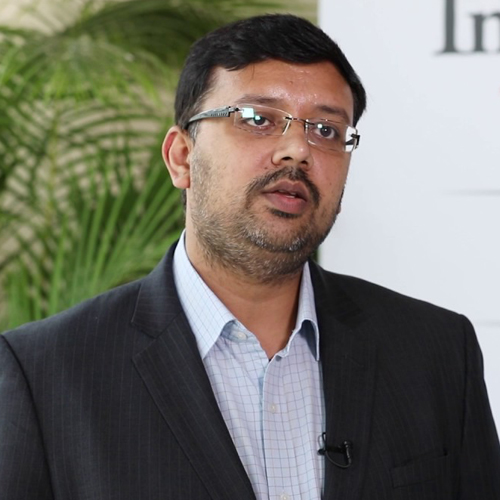On February 1, Union Finance Minister Nirmala Sitharaman presented the Union Budget 2025 in the Lok Sabha, outlining key measures to drive economic growth and urban development. With an allocation of ₹11.21 lakh crore for FY26, the budget prioritizes infrastructure investment, including ₹1.5 lakh crore in interest-free loans for capital expenditure. Public-Private Partnership (PPP)-driven projects will play a crucial role in improving urban connectivity. The introduction of SWAMIH Fund 2.0, with ₹15,000 crore allocated for stalled housing projects, aims to ensure timely completions and restore confidence among homebuyers. Continued support for affordable and mid-income housing will further stimulate demand and assist homeownership aspirations.
The budget also introduces personal income tax reforms and raises the TDS threshold for senior citizens, leading to higher disposable income and improved housing affordability. A fiscal deficit target of 4.8% for FY25 reflects a balanced approach to economic expansion and financial discipline. Additionally, the ₹1 lakh crore Urban Challenge Fund is set to transform cities, promoting regional development. Direct tax reforms, such as income tax exemptions up to ₹12 lakh, will enhance purchasing power, making homeownership more accessible. The structured pipeline for PPP-led infrastructure projects over the next three years is expected to accelerate urban expansion, creating new opportunities in the real estate sector. These initiatives reinforce the government’s strategy to strengthen the housing market and urban landscape.
Industry Experts Opinion
Mr. Robin Chhabra, Founder and CEO of Dextrus

"The Union Budget 2025 has introduced several progressive measures that will have a lasting impact on the real estate sector. Increased allocation for infrastructure development, urban housing, and smart city projects is a welcome move, as it will drive demand and enhance the overall real estate landscape. The continued push for affordable housing through incentives and tax benefits will encourage homeownership and boost residential sales. Additionally, policies promoting green and sustainable construction align well with the sector's long-term goals.
However, there remains a need for further clarity on GST rationalization and single-window clearance for real estate projects, which would streamline approvals and boost investor confidence. A strong focus on easing credit access for developers and homebuyers alike would further accelerate sectoral growth. Overall, this budget is a step in the right direction, fostering growth, sustainability, and resilience in the Indian real estate market."
Mr. Varun Sharma, Founder and Managing Director, MVN Infrastructure
"We wholeheartedly support Finance Minister Nirmala Sitharaman's Budget 2025, which sets a transformative agenda for infrastructure development. The allocation of Rs 1.5 lakh crore for 50-year interest-free loans to states will significantly boost real estate market sentiment, fostering growth and stability. We anticipate improved collaboration and efficiency in infrastructure projects. These strategic investments will not only elevate urban living standards but also catalyze economic growth across the nation. As real estate developers, we are excited about the prospects this budget brings for sustainable urban development and enhanced market dynamics."
Mr. Gaurav K Singh, Founder and Chairman, Womeki Group
"Since its launch in 2019, the Special Window for Mid-Income Housing Investment Fund (SWAMIH) has completed 20,557 units and aims to deliver 81,000 more homes in the next three years across tier-1 and tier-2 cities. The initiative has provided much-needed relief to middle-class families struggling with rent and EMIs, while also revitalizing the real estate market by prioritizing stalled projects. SWAMIH’s focus on accelerating project completions not only fulfills homebuyers' dreams but also boosts the entire real estate ecosystem, increasing sales and collections. Alongside 50-year interest-free loans to states for infrastructure growth and urban reforms focused on governance and planning, SWAMIH plays a key role in building smarter, more sustainable cities. Developers, committed to on-time delivery and high-quality standards, help create a more stable and dependable housing sector for all."
Mr. Mohit Malhotra, Founder & CEO, NeoLiv
"A significant turning point for the real estate sector has been marked by the government's recent announcement, with over 88 lakh homes completed, and the launch of PMAY-U 2.0 in September 2024 to assist an additional one crore households. This program is expected to boost economic growth, encourage public-private collaborations, and promote the housing industry. Developers with strong financial backing are well-positioned to support this revolutionary process by providing high-quality housing options that complement the 'Housing for All' national objective. This initiative, which addresses the urgent demand for housing in metropolitan and tier 2 markets, is anticipated to be well received by the people. It is expected that the government's dedication to offering long-term housing options would improve people's quality of life."
Mr. Rohit Katyal, Founder & Executive Chairman, Capacit'e Infraprojects

"As the Union Budget sets the course for India's urban future, Capacit'e Infraprojects welcomes the ₹1 lakh crore Urban Challenge Fund—a visionary step towards sustainable city transformation. This initiative will catalyze smart redevelopment and infrastructure resilience, fostering next-gen urban ecosystems. With ₹10,000 crore allocated for FY 2025-26, the momentum for high-impact urban projects is stronger than ever.
We at Capacit’e Infraprojects remain optimistic about the government’s steadfast commitment to infrastructure development, particularly in the housing and urban sectors. The substantial increase in capex allocation for urban infrastructure and affordable housing, alongside a strong focus on green building technologies, aligns perfectly with our vision of delivering sustainable, high-quality construction solutions.
As one of the pioneers in high-rise and commercial infrastructure, we are eager to collaborate in shaping India's evolving cityscapes, ensuring efficiency, sustainability, and innovation remain at the core of urban development. The government’s push to streamline business processes and boost construction activity further strengthens our strategic approach to scaling operations, enhancing our capabilities, and contributing to the nation’s infrastructural advancement."
Mr. Sunil Sisodiya, Founder, Geetanjali Homestate
"We welcome the Union Budget 2025’s strong emphasis on infrastructure development and urban rejuvenation, which are vital for fostering sustainable urban growth. The introduction of SWAMIH Fund 2, with an allocation of ₹15,000 crore to facilitate the completion of 1 lakh housing units, is a commendable move that will help resolve challenges faced by stalled and delayed real estate projects. This initiative will bring much-needed relief to homebuyers and drive momentum in housing delivery, reinforcing trust in the sector. As a key player in the real estate industry, we recognize the significance of a well-defined urban development framework to ensure planned growth, efficient infrastructure, and sustainable housing solutions."
Mr. Sudarshan Lodha, Co-Founder & CEO, Strata SM REIT
"The Union Budget 2025-26 takes meaningful steps toward strengthening India’s infrastructure landscape, particularly through the expansion of the Public-Private Partnership (PPP) model and the continuation of the Asset Monetisation Plan. The ₹1.5 lakh crore interest-free loan to states for capital expenditure is a welcome move, as it will encourage long-term investments in critical sectors. Also, the ₹10 lakh crore Asset Monetisation Plan provides a much-needed boost to unlock value from existing assets and reinvest in new projects.
The revision in IT slabs is also a positive step, as it will add more liquidity and encourage wider participation in investments, including structured real estate opportunities. The evolving regulatory and fiscal framework will be crucial in ensuring that private capital finds efficient avenues to participate in infrastructure development. A well-defined regulatory framework will be key, and I’m looking forward to seeing how these policies translate into real investment opportunities."
Mr. Madhur Gupta, CEO, Hero Realty
"The government's latest budgetary allocations, particularly the ₹15,000 crore SWAMIH Fund 2, will provide a much-needed boost to the real estate sector by ensuring the completion of stalled projects and restoring homebuyer confidence. The ₹1 lakh crore Urban Challenge Fund is a transformative step toward developing future-ready cities, making them vibrant economic hubs. Additionally, the ₹1.5 lakh crore outlay for PPP infrastructure projects will enhance urban connectivity and drive demand for real estate. These measures collectively reinforce the sector’s growth trajectory and align with India's vision of sustainable urban development."
Mr. Yashank Wason, Managing Director, Royal Green Realty

"As we reflect on the Union Budget 2025 - 26, there is a renewed sense of optimism within the real estate sector. The Finance Minister's focus on addressing stalled housing projects through initiatives such as interest - free loans amounting to Rs 1.5 lakh crore for capital expenditure and the introduction of three Public-Private Partnership model (PPP) proposals from each infrastructure ministry is commendable. This budget also aims to complete an additional 40 thousand housing units in 225, benefitting middle class families who are currently managing both EMIs for home loans and rental payments. A nationwide framework will be developed as guidance to states for promoting Global Capacity Centres (GCCs) in emerging tier 2 cities. Also, increase of the nil tax slab threshold to ₹12 lakh enhances the spending power of the middle class, making homeownership more attainable. With increased disposable income, individuals can more comfortably manage home loan EMIs, encouraging them to invest in their dream homes Overall, this budget sets the stage for sustainable growth in the real estate sector, fostering new opportunities for investors and homebuyers."
Mr. Yateesh Wahaal, Director M3M India

"We commend Finance Minister Nirmala Sitharaman for presenting a visionary Budget 2025 that prioritizes infrastructure development and urban expansion, particularly in Tier 2 and Tier 3 cities. The Udaan Yojana will be a game-changer, enhancing connectivity and unlocking the economic potential of emerging regions. Additionally, the national framework for Global Capability Centers in Tier 2 cities will strengthen talent availability and industry collaboration, fostering a robust investment climate. With India maintaining its position as the fastest-growing major economy, these structural reforms will accelerate real estate growth, boost private sector participation, and empower the middle class, further enhancing their spending power. M3M India remains committed to contributing to this transformative journey towards 'Viksit Bharat.'"
Mr. Mrinaal Mittal, Director, Unity Group
"The announcement of SWAMIH 2, with a corpus of ₹15,000 crore, marks a significant boost for the real estate sector, particularly for affordable and mid-income housing. Building on the success of its predecessor, this blended finance facility will expedite the completion of one lakh housing units, addressing the pressing concerns of families stuck between paying rent and home loans. Additionally, the commitment to complete 40,000 housing units in 2025-26 demonstrates the government's proactive approach to alleviating housing woes. This initiative not only supports homebuyers but also rejuvenates confidence in the real estate ecosystem, fostering economic growth and employment. The collaboration of the government, banks, and private investors is a testament to the collective effort to make housing truly affordable."
Mr. Viren Mehta, Director, ElitePro Infra

“We welcome the finance minister’s decisions towards the real estate sector in the Budget 2025. Under the SWAMIH program, 50,000 dwelling units and plans to drive an additional 40,000 units by 2025 have been completed. This will provide support to middle - class families facing dual housing costs and alleviating financial burden on families paying EMIs on housing loans, while also covering rent for their existing homes. For the fiscal year 2025 - 26, Rs 10,000 crore has been allocated from the Rs 1 lakh crore Urban Challenge Fund, which aims to implement projects under the themes of ‘Cities as Growth Hubs’ and ‘Creative Redevelopment of Cities’. The fund will support urban areas’ transformation into growth centers by financing up to 25% of viable urban development projects. The budget 2025 offers financial flexibility for homebuyers. It acknowledges the diverse needs of various homebuyers, offering tax relief and encouraging real estate investments. The decision aligns with the government’s broader focus on comfortable living and financial empowerment, strengthening the real estate industry.”
Mr. Ashish Agarwal, Director, AU Real estate
'We welcome Finance Minister Nirmala Sitharaman's visionary Budget 2025, which prioritizes the growth of Tier 2 and Tier 3 cities through the Udaan Yojana. This initiative will connect smaller cities with major urban centers, significantly enhancing their market value and economic potential. The proposed national framework will guide states in establishing Global Capability Centres, fostering talent availability and infrastructure development while promoting collaboration with industry. With over 1.18 crore houses sanctioned under the Pradhan Mantri Awas Yojana, and the introduction of PMAY-U 2.0 for an additional one crore households, we are confident that these measures will transform our urban landscape and drive inclusive growth across all regions."
Mr. Abhishek Trehan, Executive Director, Trehan Iris

“We welcome Budget 2025 as a transformative step towards shaping the future of urban development and infrastructure. The creation of the Urban Challenge Fund, with an allocation of ₹1 lakh crore to support ‘Cities as Growth Hubs,’ is a groundbreaking move that will fuel sustainable, inclusive growth across the nation. The big relaxation in income tax slabs, announced by Union Finance Minister Nirmala Sitharaman, will boost the power of consumption and provide a major fillip to the real estate sector, enabling investors to spend more on property buying. Additionally, the SWAMIH Fund of ₹15,000 crore will accelerate the completion of housing projects, benefiting both developers and homebuyers. Moreover, with over 1.18 crore homes already sanctioned under the Pradhan Mantri Awas Yojana, and the introduction of PMAY-U 2.0 for one crore more households, we are optimistic that these initiatives will redefine our urban landscape. Budget 2025 strikes a vital balance between growth and housing, setting the foundation for sustainable development and long-term prosperity in the real estate sector.”
Ms. Manju Yagnik, Vice Chairperson of Nahar Group and Senior Vice President of NAREDCO Maharashtra
“The Union Budget 2025-26 reaffirms the government’s commitment to inclusive development, economic growth, and a strategic focus on increasing consumption. For FY26, FM Sitharaman has allocated ₹11.21 lakh crore, reaffirming the government’s focus on infrastructure development and economic growth. The allocation of ₹1.5 lakh crore in interest-free loans for capital expenditure and the push for PPP-driven infrastructure projects will enhance urban connectivity and boost development. The launch of SWAMIH Fund 2 with ₹15,000 crore is a welcome move to revive stalled housing projects, ensuring timely completion and restoring homebuyer confidence. The continued emphasis on affordable and mid-income housing will further drive demand, supporting homeownership aspirations. Additionally, personal income tax reforms and a higher TDS threshold for senior citizens will improve disposable income, positively influencing housing affordability. With a fiscal deficit target of 4.8% for FY25, the budget balances growth and financial prudence. These measures collectively strengthen the foundation for a dynamic and resilient real estate market.”
Mr. Sunny Bijlani, Joint Managing Director, Supreme Universal
“Union Budget 2025, Finance Minister Nirmala Sitharaman announced a significant change regarding self-occupied properties. Taxpayers are now allowed to claim the annual value of two self-occupied properties as nil, effectively exempting them from paying tax on notional rental income for both properties. Previously, only one self-occupied property could be claimed as tax-exempt, while additional properties were subject to tax based on deemed rental income, even if they were not rented out.
This amendment provides substantial tax relief to homeowners with multiple properties and encourages homeownership by reducing the financial burden associated with owning more than one home. It reflects a more progressive approach in accommodating the diverse needs of property owners.
Also, the real estate sector is set for significant growth, driven by the government’s unwavering commitment to infrastructure development. With 50,000 dwelling units already completed under the SWAMI scheme and another 40,000 in progress, housing demand is rising. The ₹15,000 crore SWAMI Fund 2 will provide essential financial support to stalled projects, ensuring timely completion and strengthening market stability.
Backing this momentum, Budget 2024 allocated ₹11.11 lakh crore for capital expenditure, maintaining the same level as the interim budget, accounting for 3.4% of GDP. The revised capex of ₹11.21 lakh crore further reinforces the government’s focus on infrastructure, fueling economic growth and creating a strong foundation for real estate expansion.
Increased investments in urban mobility, utilities, and connectivity will enhance residential and commercial developments, making cities more livable and business-friendly. These strategic reforms and higher infrastructure spending will unlock new investment opportunities, propelling long-term growth and reinforcing India’s vision for sustainable urban expansion.”
Mr. Ashish Sharma, AVP Operations, Brahma Group
“We wholeheartedly support Budget 2025, which lays out a transformative vision for infrastructure development. Moreover, the allocation of Rs 1.5 lakh crore for 50-year interest-free loans to states is a game-changer for the real estate sector. This significant financial support will instill confidence, boost market sentiment, and drive growth and stability across the industry. Furthermore, we believe that this initiative will lead to improved collaboration, greater efficiency, and faster implementation of infrastructure projects. The strategic investments outlined in the budget will elevate urban living standards, create more resilient cities, and catalyze broader economic growth. Furthermore, we are excited by the opportunities this budget presents for sustainable urban development.”
Mr. Manik Malik, CFO, BPTP
“For middle-class households in India, the construction of 50,000 dwelling units under the Special Window for Mid-Income Housing and the anticipated delivery of an additional 40,000 units in 2025 represent a major milestone. By easing the combined financial strain of rent and EMIs, these initiatives help homebuyers regain their confidence. In addition, the ₹1 lakh crore Urban Challenge Fund, which has ₹10,000 crore set aside for FY 2025–2026, has the potential to turn our cities into vibrant centers of growth. Cities will become more habitable and appealing as a result of this significant investment in urban infrastructure. These programs along with additional funds given in hands of taxpayers by slashing on rates has further opened the door for sustainable urban growth and shall inspire any real estate developers.”
Mr. Badal Yagnik, Chief Executive Officer, Colliers India

“The Union Budget 2025-26 has continued to further the goal of ‘Viksit Bharat’ and ‘Sabka Vikas’ through transformative reforms across six key domains including urban & real estate development, power & mining sectors, financial services and taxation as well regulatory reforms. Balanced regional growth across tier I & II cities will be driven by engines such as agriculture, MSMEs, investments and exports. The National Manufacturing Mission, guidance framework for GCCs, start-up focused AIF, SWAMIH 2 fund and Urban Challenge Fund, all hold potential to significantly accelerate real estate growth across multiple real estate segments. The budget has continued to focus on improving the ease of doing business through innovation, technological upgradation and sharing of data between public & private sector establishments. The extension of the SWAMIH fund is a much-expected move as several real, estate projects continue to reel under stress due to funding constraints, delaying delivery of homes. Additionally, rationalization of taxes and enhancement of exemption limits can boost disposable income spurring consumption levels and real estate investments, particularly in residential real estate and alternate financial instruments such as REITs.”
Mr. Shrinivas Rao, FRICS, CEO, Vestian
“The Union Budget 2025 focuses on employment generation, boosting domestic consumption, and enhancing connectivity by concentrating on the rapid development of physical infrastructure and increasing disposable income of citizens. This will have a positive impact on increasing demand for all real estate asset classes across the country. Furthermore, the budget has an allocation of INR 15,000 Cr under the SWAMIH Fund for addressing liquidity issues of delayed housing projects. This along with the digitization of land records is expected to strengthen homebuyers’ confidence. Upgradation of infrastructure facilities for air cargo will multiply the demand for warehousing across the country. Focus on setting up GCCs in tier-2 cities will transform the real estate landscape in the emerging cities of India."
Mr. Piyush Bothra, Co-Founder and CFO, Square Yards
“The recent budget introduces much-needed relief, particularly with the zero-tax provision on annual incomes up to Rs 12 lakh—a move that enhances disposable income and is expected to support homebuyers. Additionally, the allocation of Rs 15,000 crore under the SWAMIH Fund for completing 1 lakh stalled housing units is a significant intervention, providing relief to buyers impacted by delayed projects and supporting supply-side stakeholders.
However, additional measures could have further strengthened the sector. Increasing home loan deduction limits would have improved financing accessibility, particularly for first-time homebuyers and end-users. This could have enhanced affordability, eased credit constraints, reduced tax liabilities, and contributed towards meeting the projected demand of 93 million housing units by 2036.”
Way Forward
The Union Budget 2025 lays a strong foundation for sustainable urban growth, infrastructure expansion, and housing sector revival. To maximize its impact, efficient execution of allocated funds, streamlined regulatory approvals, and proactive private sector participation will be essential. Strengthening public-private partnerships, expediting SWAMIH-funded project completions, and ensuring timely disbursal of capital expenditure loans to states can accelerate urban transformation. Additionally, enhancing governance frameworks and digital integration in urban planning will drive efficiency and long-term economic resilience. With a focus on smart, well-connected cities and housing accessibility, India is poised for a transformative decade of real estate and infrastructure development.






























.png)